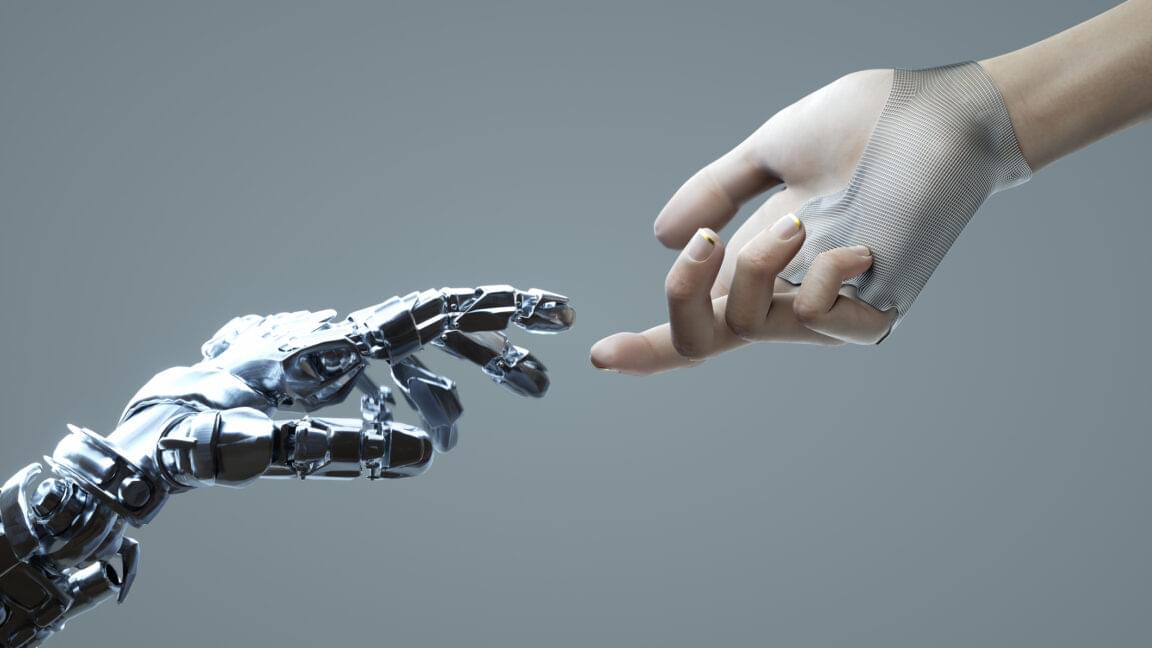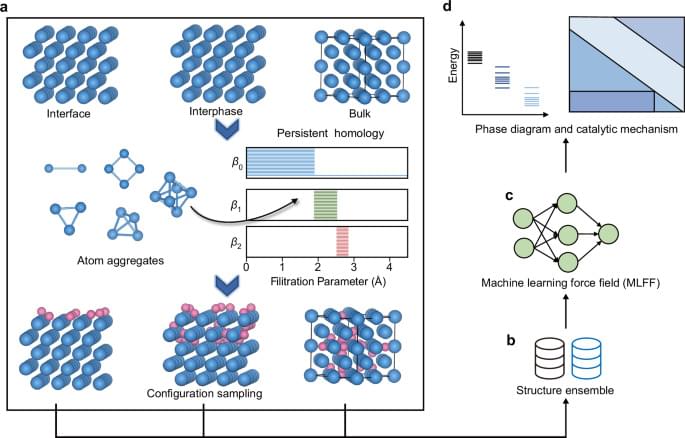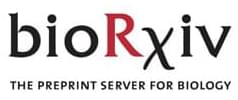A real bit of cyborg hardware highlights the technology’s current limitations.


What happens when AI becomes infinitely smarter than us—constantly upgrading itself at a speed beyond human comprehension? This is the Singularity, a moment where AI surpasses all limits, leaving humanity at a crossroads.
Elon Musk predicts superintelligent AI by 2029, while Ray Kurzweil envisions the Singularity by 2045. But if AI reaches this point, will it be our greatest breakthrough or our greatest threat?
The answer might change everything we know about the future.
Chapters:
00:00 — 01:15 Intro.
01:15 — 03:41 What Is Singularity Paradox?
03:41 — 06:19 How Will Singularity Happen?
06:19 — 09:05 What Will Singularity Look Like?
09:05 — 11:50 How Close Are We?
11:50 — 14:13 Challenges And Criticism.
#AI #Singularity #ArtificialIntelligence #ElonMusk #RayKurzweil #FutureTech
The future of AI is here—and it’s running on human brain cells! In a groundbreaking development, scientists have created the first AI system powered by biological neurons, blurring the line between technology and biology. But what does this mean for the future of artificial intelligence, and how does it work?
This revolutionary AI, known as “Brainoware,” uses lab-grown human brain cells to perform complex tasks like speech recognition and decision-making. By combining the adaptability of biological neurons with the precision of AI algorithms, researchers have unlocked a new frontier in computing. But with this innovation comes ethical questions and concerns about the implications of merging human biology with machines.
In this video, we’ll explore how Brainoware works, its potential applications, and the challenges it faces. Could this be the key to creating truly intelligent machines? Or does it raise red flags about the ethical boundaries of AI research?
What is Brainoware, and how does it work? What are the benefits and risks of AI powered by human brain cells? How will this technology shape the future of AI? This video answers all these questions and more. Don’t miss the full story—watch until the end!
#ai.
#artificialintelligence.
#ainews.
******************
Master AI avatars, video automation, AI graphics, and monetization 👉👉🔗 https://www.skool.com/aicontentlab/about 🚀 New content added monthly!
Scientists have created a groundbreaking AI that uses living human brain cells instead of traditional silicon chips, allowing it to learn and adapt faster than any existing artificial intelligence. Developed by Cortical Labs, this new technology, called Synthetic Biological Intelligence (SBI), combines human neurons and electrodes to create a self-learning system that could revolutionize drug discovery, robotics, and computing. The CL1 AI unit, unveiled in March 2025, operates with minimal energy, doesn’t require an external computer, and is available through Wetware-as-a-Service (WaaS), enabling researchers to run experiments on biological neural networks from anywhere in the world.
🔍 KEY TOPICS
Scientists create an AI using living human brain cells, redefining intelligence and learning.
Cortical Labs’ CL1 unit combines neurons and electrodes for faster, more efficient AI
Breakthrough in Synthetic Biological Intelligence (SBI) with real-world applications in medicine, robotics, and computing.
🎥 WHAT’S INCLUDED
How human neurons power AI, enabling it to learn and adapt faster than any chip.
The revolutionary CL1 system, a self-contained AI unit that doesn’t need an external computer.
The potential impact of biological AI on drug discovery, robotics, and future technology.
📊 WHY IT MATTERS
This video explores how AI built with human neurons could reshape computing, making systems smarter, more energy-efficient, and capable of human-like learning, raising new possibilities and ethical debates.
DISCLAIMER
Chinese startup Butterfly Effect has unveiled what it claims is the first general AI agent capable of acting autonomously.

Global optimization-based approaches such as basin hopping28,29,30,31, evolutionary algorithms32 and random structure search33 offer principled approaches to comprehensively navigating the ambiguity of active phase. However, these methods usually rely on skillful parameter adjustments and predefined conditions, and face challenges in exploring the entire configuration space and dealing with amorphous structures. The graph theory-based algorithms34,35,36,37, which can enumerate configurations for a specific adsorbate coverage on the surface with graph isomorphism algorithms, even on an asymmetric one. Nevertheless, these methods can only study the adsorbate coverage effect on the surface because the graph representation is insensitive to three-dimensional information, making it unable to consider subsurface and bulk structure sampling. Other geometric-based methods38,39 also have been developed for determining surface adsorption sites but still face difficulties when dealing with non-uniform materials or embedding sites in subsurface.
Topology, independent of metrics or coordinates, presents a novel approach that could potentially offer a comprehensive traversal of structural complexity. Persistent homology, an emerging technique in the field of topological data analysis, bridges the topology and real geometry by capturing geometric structures over various spatial scales through filtration and persistence40. Through embedding geometric information into topological invariants, which are the properties of topological spaces that remain unchanged under specific continuous deformations, it allows the monitoring of the “birth,” “death,” and “persistence” of isolated components, loops, and cavities across all geometric scales using topological measurements. Topological persistence is usually represented by persistent barcodes, where different horizontal line segments or bars denote homology generators41. Persistent homology has been successfully employed to the feature representation for machine learning42,43, molecular science44,45, materials science46,47,48,49,50,51,52,53,54,55, and computational biology56,57. The successful application motivates us to explore its potential as a sampling algorithm due to its capability of characterizing material structures multidimensionally.
In this work, we introduce a topology-based automatic active phase exploration framework, enabling the thorough configuration sampling and efficient computation via MLFF. The core of this framework is a sampling algorithm (PH-SA) in which the persistent homology analysis is leveraged to detect the possible adsorption/embedding sites in space via a bottom-up approach. The PH-SA enables the exploration of interactions between surface, subsurface and even bulk phases with active species, without being limited by morphology and thus can be applied to periodical and amorphous structures. MLFF are then trained through transfer learning to enable rapid structural optimization of sampled configurations. Based on the energetic information, Pourbaix diagram is constructed to describe the response of active phase to external environmental conditions. We validated the effectiveness of the framework with two examples: the formation of Pd hydrides with slab models and the oxidation of Pt clusters in electrochemical conditions. The structure evolution process of these two systems was elucidated by screening 50,000 and 100,000 possible configurations, respectively. The predicted phase diagrams with varying external potentials and their intricate roles in shaping the mechanisms of CO2 electroreduction and oxygen reduction reaction were discussed, demonstrating close alignment with experimental observations. Our algorithm can be easily applied to other heterogeneous catalytic structures of interest and pave the way for the realization of automatic active phase analysis under realistic conditions.

The electrically readable complex dynamics of robust and scalable magnetic tunnel junctions (MTJs) offer promising opportunities for advancing neuromorphic computing. In this work, we present an MTJ design with a free layer and two polarizers capable of computing the sigmoidal activation function and its gradient at the device level. This design enables both feedforward and backpropagation computations within a single device, extending neuromorphic computing frameworks previously explored in the literature by introducing the ability to perform backpropagation directly in hardware. Our algorithm implementation reveals two key findings: (i) the small discrepancies between the MTJ-generated curves and the exact software-generated curves have a negligible impact on the performance of the backpropagation algorithm, (ii) the device implementation is highly robust to inter-device variation and noise, and (iii) the proposed method effectively supports transfer learning and knowledge distillation. To demonstrate this, we evaluated the performance of an edge computing network using weights from a software-trained model implemented with our MTJ design. The results show a minimal loss of accuracy of only 0.4% for the Fashion MNIST dataset and 1.7% for the CIFAR-100 dataset compared to the original software implementation. These results highlight the potential of our MTJ design for compact, hardware-based neural networks in edge computing applications, particularly for transfer learning.
What excites you the most about the potential of quantum computers?
💡 Future Business Tech explores AI, emerging technologies, and future technologies.
SUBSCRIBE: https://bit.ly/3geLDGO
This video explores the future of quantum computing. Related terms: ai, future business tech, future technology, future tech, future business technologies, future technologies, quantum computing, etc.
ℹ️ Some links are affiliate links. They cost you nothing extra but help support the channel so I can create more videos like this.
#technology #quantumcomputing

In today’s AI news, OpenAI and Google are pushing the US government to allow their AI models to train on copyrighted material. Both companies outlined their stances in proposals published this week, with OpenAI arguing that applying fair use protections to AI “is a matter of national security.” The proposals come in response to a request from the White House, which asked for input on Trump’s AI Action Plan.
In other advancements, one of the bigger players in automation has scooped up a startup in the space in hopes of taking a bigger piece of that market. UiPath, as part of a quarterly result report last night that spelled tougher times ahead, also delivered what it hopes might prove a silver lining. It said it had acquired, a startup founded originally in Manchester, England.
S most advanced features are now available to free users. You And, the restrictive and inconsistent licensing of so-called ‘open’ AI models is creating significant uncertainty, particularly for commercial adoption, Nick Vidal, head of community at the Open Source Initiative, told TechCrunch. While these models are marketed as open, the actual terms impose various legal and practical hurdles that deter businesses from integrating them into their products or services.
S Kate Rooney sits down with Garry Tan, Y Combination president and CEO, at the accelerator On Inside the Code, Ankit Kumar, Sesame, and Anjney Midha, a16z on the Future of Voice AI. What goes into building a truly natural-sounding AI voice? Sesame’s cofounder and CTO, Ankit Kumar, joins a16z’s Anjney Midha for a deep dive into the research and engineering behind their voice technology.
Then, Nate B. Jones explains how AI is making intelligence cheaper, but software strategies built on user lock-in are failing. Historically, SaaS companies relied on retaining users by making it difficult to switch. However, as AI lowers the cost of building and refactoring, users move between tools more freely. The real challenge now is data interoperability—data remains siloed, making AI-generated content and workflows hard to integrate.
We close out with, AI is getting expensive…but it doesn’t have to be. NetworkChuck found a way to access all the major AI models– ChatGPT, Claude, Gemini, even Grok – without paying for multiple expensive subscriptions. Not only does he get unlimited access to the newest models, but he also has better security, more privacy, and a ton of features… this might be the best way to use AI.
Thats all for today, but AI is moving fast — subscribe and follow for more Neural News.

Convolutional neural networks (CNNs) were inspired by the organization of the primate visual system, and in turn have become effective models of the visual cortex, allowing for accurate predictions of neural stimulus responses. While training CNNs on brain-relevant object-recognition tasks may be an important pre-requisite to predict brain activity, the CNN’s brain-like architecture alone may already allow for accurate prediction of neural activity. Here, we evaluated the performance of both task-optimized and brain-optimized convolutional neural networks (CNNs) in predicting neural responses across visual cortex, and performed systematic architectural manipulations and comparisons between trained and untrained feature extractors to reveal key structural components influencing model performance. For human and monkey area V1, random-weight CNNs employing the ReLU activation function, combined with either average or max pooling, significantly outperformed other activation functions. Random-weight CNNs matched their trained counterparts in predicting V1 responses. The extent to which V1 responses can be predicted correlated strongly with the neural network’s complexity, which reflects the non-linearity of neural activation functions and pooling operations. However, this correlation between encoding performance and complexity was significantly weaker for higher visual areas that are classically associated with object recognition, such as monkey IT. To test whether this difference between visual areas reflects functional differences, we trained neural network models on both texture discrimination and object recognition tasks. Consistent with our hypothesis, model complexity correlated more strongly with performance on texture discrimination than object recognition. Our findings indicate that random-weight CNNs with sufficient model complexity allow for comparable prediction of V1 activity as trained CNNs, while higher visual areas require precise weight configurations acquired through training via gradient descent.
The authors have declared no competing interest.